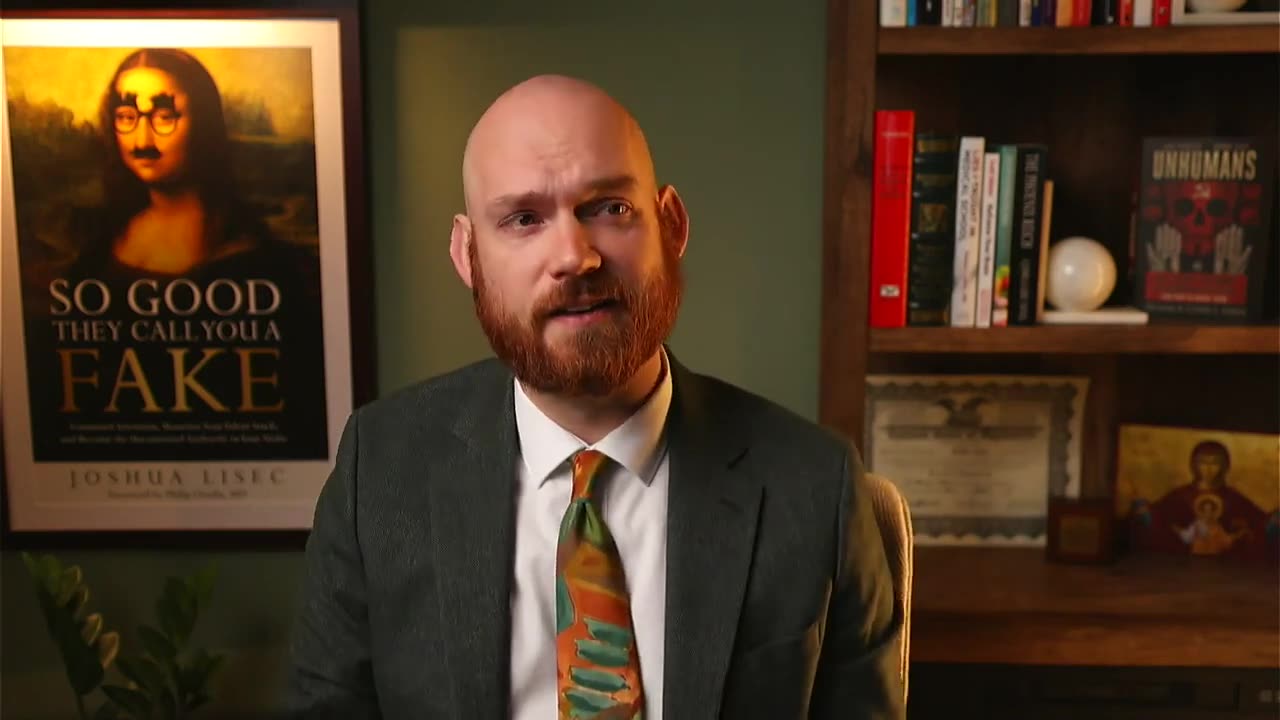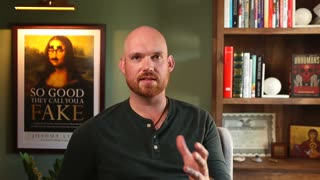Premium Only Content

Why Are Egg Prices So High? ft. Post Hoc Fallacy — Daily Persuasion with Joshua Lisec Ep. 177
Would you like to write a persuasive BOOK? One that changes minds and influencers behavior for years to come? Start with a GOLDEN book idea. Let NEW YORK TIMES bestselling author Joshua Lisec teach you: https://lisecghostwriting.com/golden
ABOUT TODAY'S EPISODE:
Why Are Egg Prices So High? ft. Post Hoc Fallacy — Daily Persuasion with Joshua Lisec Ep. 177 opens with a mind-bending question: What do skyrocketing egg prices and faulty logic have in common? The answer is more revealing than most Americans realize.
In this sharp, eye-opening episode of Daily Persuasion, Joshua Lisec—New York Times bestselling author, professional ghostwriter of over 100 nonfiction books, and certified hypnotist—uncovers the truth behind the current economic illusion. Episode 177, titled “Why Are Egg Prices So High?”, doesn’t just ask the question—it uses it to illustrate one of the most common logical deceptions in media and politics: the post hoc fallacy.
Lisec breaks down how narratives around egg prices are being manipulated through emotional storytelling, repetition, and poor reasoning. You’ve probably heard it too: Trump’s back in the news, and suddenly, eggs are $14 a dozen. This is a textbook post hoc fallacy—after this, therefore because of this. But as Lisec shows, there’s a massive difference between correlation and causation. Understanding what is post hoc fallacy could be your first defense against being emotionally hijacked by misleading narratives.
He explains how politicians, pundits, and opposition media rely on post hoc fallacy examples to keep the public misinformed. In fact, many Americans asking why are eggs so expensive right now don’t realize that supply chain disruptions and the mass culling of birds during the avian flu scare had far more to do with rising egg prices than any recent speech or political shift. Yet, by repeating the high-end egg cost—$14 a dozen—over and over again, media outlets foster a false sense of cause-and-effect.
Lisec gives you tools to see through the fog. With his stylus-in-hand method, he encourages you to illustrate supply and demand explained in its simplest form: fewer hens, lower supply, same demand = higher prices. Visual persuasion techniques like this are incredibly effective when speaking with someone who lacks economic literacy. Want to know how to persuade someone to do something—like rethink their beliefs? This episode gives you the blueprint.
This is persuasion psychology in action: You learn not just the what, but the why behind what people believe—and how to shift that belief using simple, visual persuasive techniques. From egg cartons to economic concepts, Lisec turns everyday confusion into teachable moments. This episode of Daily Persuasion delivers multiple persuasion examples, all rooted in real-world misunderstandings and media manipulation.
If you’ve ever wondered why are eggs so expensive 2025, or wanted to challenge someone’s surface-level hot take on egg prices USA, this episode arms you with clarity. Lisec doesn’t just explain the post hoc fallacy—he demonstrates how it’s weaponized against voters, consumers, and citizens to manipulate emotion and push agendas.
And because this is Lisec, he wraps every economic lesson in hypnotically sharp storytelling. His mastery of techniques of persuasion in writing turns a simple question about eggs into a crash course on influence and how to resist it. These are examples of persuasion in advertising and politics—disguised as "news"—that you must recognize to avoid being played.
Episode 177 is more than just a response to inflated egg prices. It’s an invitation to wake up. The next time someone repeats a media line about why are eggs so expensive right now, you’ll know how to break the spell—and maybe even become the first person to explain reality to them.
Don’t fall for another post hoc fallacy. Watch “Why Are Egg Prices So High?” ft. Post Hoc Fallacy — Daily Persuasion with Joshua Lisec Ep. 177 now, and equip yourself with the truth—and the persuasion techniques to share it.
-
 10:53
10:53
Daily Persuasion with Joshua Lisec
8 days agoKenny Loggins' Anti Trump Fail & The No Kings Protest Moral High Ground Maneuver — Ep. 330
37 -
 2:01:08
2:01:08
LFA TV
23 hours agoTHE RUMBLE RUNDOWN LIVE @9AM EST
33.8K3 -
 57:26
57:26
X22 Report
2 hours agoMr & Mrs X - The Food Industry Is Trying To Pull A Fast One On RFK Jr (MAHA), This Will Fail - EP 14
15.8K9 -
 1:06:36
1:06:36
Wendy Bell Radio
5 hours agoPet Talk With The Pet Doc
4.66K15 -
 30:58
30:58
SouthernbelleReacts
2 days ago $3.50 earnedWe Didn’t Expect That Ending… ‘Welcome to Derry’ S1 E1 Reaction
2.51K4 -
 13:51
13:51
True Crime | Unsolved Cases | Mysterious Stories
5 days ago $7.62 earned7 Real Life Heroes Caught on Camera (Remastered Audio)
5K1 -
 LIVE
LIVE
Total Horse Channel
11 hours ago2025 IRCHA Derby & Horse Show - November 1st
45 watching -
 4:19
4:19
PistonPop-TV
6 days ago $0.90 earnedThe 4E-FTE: Toyota’s Smallest Turbo Monster
3.08K -
 43:07
43:07
WanderingWithWine
5 days ago $0.66 earned5 Dreamy Italian Houses You Can Own Now! Homes for Sale in Italy
3.68K2 -
 LIVE
LIVE
Spartan
19 hours agoFirst playthrough of First Berserker Khazan
279 watching